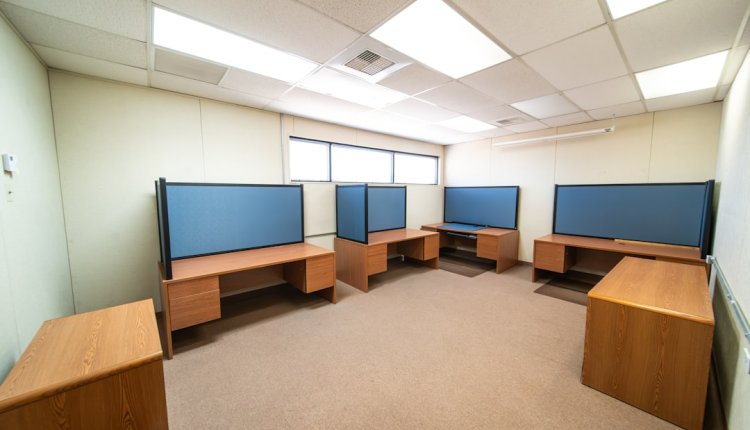What Does a Monitoring Centre Operator Do? A Complete Career Guide for U.S. Job Seekers
If you’re someone who is detail-oriented, quick to respond in high-pressure situations, and interested in working behind the scenes in a crucial role, becoming a Monitoring Centre Operator (MCO) might be the perfect career choice. This position, though often underrated, plays a vital role in maintaining safety and operational efficiency in a variety of industries across the United States.
Monitoring Centre Operators—also known as Alarm Monitoring Operators or Security Control Room Operators—are responsible for coordinating emergency responses, monitoring activities via security systems, and ensuring that threats and irregularities are addressed promptly. In this guide, we’ll explore what Monitoring Centre Operators do, the skills required, career outlook, and how you can get started in this rewarding field.
What Is a Monitoring Centre Operator?
A Monitoring Centre Operator works from a centralized location—often a secure facility—where they observe security systems, alarms, and communication networks for a variety of clients including businesses, government agencies, and private individuals. Their main task is to identify potential issues and coordinate an appropriate response, whether that’s contacting emergency services, dispatching on-site staff, or escalating the issue internally.
This role is an essential component of modern safety and security infrastructures, particularly in sectors such as:
- Commercial and residential security
- Healthcare systems and emergency response
- Transportation and logistics
- Utilities and energy sectors
The widespread need for security monitoring means opportunities exist across many different industries and geographic areas.

Core Responsibilities of a Monitoring Centre Operator
While job duties can vary depending on the organization, here are some common responsibilities you can expect in this role:
- Monitoring Alarm Systems: Operators continuously observe various alarm systems—such as intrusion, fire, and medical alarms—and assess the situation based on the alerts received.
- Coordinating Emergency Responses: In the event of an alarm, operators must quickly determine the level of risk and notify appropriate agencies such as police, fire departments, EMTs, or internal security teams.
- Handling Surveillance Systems: Many MCOs also work with live CCTV footage, identifying suspicious activities and ensuring surveillance systems are functioning correctly.
- Maintaining Logs and Reports: For every incident or alert, operators must document actions taken, communication logs, and any follow-up required, ensuring accuracy and compliance.
- Customer Interaction: In some environments, MCOs communicate directly with clients or tenants to address concerns or provide updates on alerts.
These responsibilities require vigilance, excellent communication, and the ability to remain calm under pressure. The work is often shift-based to provide 24/7 coverage, which can be ideal for individuals seeking non-traditional work hours.
Key Skills and Traits for Success
Because of the nature of the job, being detail-focused and proactive is more valuable than simply having technical know-how. Here are a few essential skills and qualities that top Monitoring Centre Operators tend to display:
- Strong Communication Skills: Clear and efficient communication is critical—especially during emergencies when time is of the essence.
- Attention to Detail: Monitoring multiple screens, logs, and alerts simultaneously requires a keen eye and quick judgment.
- Technical Proficiency: Operators must be comfortable using monitoring software, alarm systems, and radio or phone communications systems.
- Multi-tasking Abilities: Handling several tasks at once, from logging incidents to troubleshooting system errors, is routine in this role.
- Emotional Resilience: Remaining calm and composed during critical incidents ensures proper decision-making.
Training and Educational Requirements
One of the appealing aspects of a Monitoring Centre Operator career is that it does not typically require a four-year college degree. Here’s what most employers look for:
- High School Diploma or GED: This is the minimum educational requirement for most positions.
- On-the-Job Training: Most organizations provide specialized training to familiarize new hires with proprietary systems and procedures.
- Certifications (Optional): Some operators obtain certifications such as the Central Station Alarm Association (CSAA) Five Diamond Certification or First Aid and CPR training, which can enhance their credentials and prospects.
- Criminal Background Check: As this is a sensitive position that involves monitoring and sometimes access to private or critical infrastructure, a clean criminal record is often required.
Technical training programs in electronic security or emergency management may also be available through community colleges or vocational schools and can make candidates more competitive.
Work Environment and Typical Employers
Monitoring Centre Operators typically work in well-lit, climate-controlled offices equipped with multiple monitors, communication devices, and secure data systems.
Common employers include:
- Private security firms
- Alarm and surveillance companies
- Hospitals and healthcare systems
- Municipal emergency control centers
- Utility providers and transport companies
The job may involve working night shifts, weekends, and holidays, depending on the employer’s requirements. Shift work can be a benefit for individuals looking for flexible working hours.

Career Progression and Opportunities
Starting as a Monitoring Centre Operator opens up several career pathways. With experience, MCOs can advance to roles such as:
- Shift Supervisor: Overseeing operator teams and ensuring proper coordination and protocol adherence.
- Security Systems Analyst: Specializing in systems diagnostics, maintenance, and strategy development for enhanced security monitoring.
- Emergency Dispatch Manager: Leading regional or national emergency response dispatch operations.
- Security Consultant: Advising organizations on custom alarm and monitoring solutions based on observations and data collected in the field.
Many professionals also cross over into IT, law enforcement, and other emergency services fields, leveraging the analytical skills and crisis handling capabilities developed as an MCO.
Industry Outlook and Salary Expectations
According to data from the U.S. Bureau of Labor Statistics (BLS), the broader field that includes security system monitoring and emergency dispatch is expected to see steady demand. With growing concerns over public safety, cyber threats, and emergency preparedness, the role of the Monitoring Centre Operator is only becoming more important.
Typical salaries for Monitoring Centre Operators in the U.S. range from $30,000 to $55,000 per year, depending on location, experience, and qualifications. Those in supervisory roles or specialized industries may earn significantly more.
Many jobs also offer benefits such as health insurance, paid time off, and retirement plans, especially when working for larger employers or government-affiliated organizations.
How to Get Started in This Career
If you’re ready to enter the world of monitoring and security operations, here are the steps you should follow:
- Complete Your High School Diploma or GED.
- Look for Entry-Level Positions: Search for job postings with titles like “Alarm Monitoring Operator”, “Control Room Associate”, or “Dispatch Coordinator.”
- Apply and Prepare for Interviews: Be ready to demonstrate your soft skills, technical awareness, and ability to handle stressful scenarios.
- Undergo Training: Welcome any opportunity for advanced training to build your confidence and competence.
- Keep Learning: Consider pursuing optional certification and stay updated on advancing technologies in the monitoring space.
Final Thoughts
The role of a Monitoring Centre Operator is essential in our increasingly connected and security-conscious world. Though often unnoticed by the public, these professionals ensure our homes, businesses, and communities remain safe and responsive to threats of all kinds.
Whether you’re starting your career or looking to pivot into a role that offers both responsibility and stability, becoming a Monitoring Centre Operator in the U.S. may be both a meaningful and strategic choice.

Comments are closed.